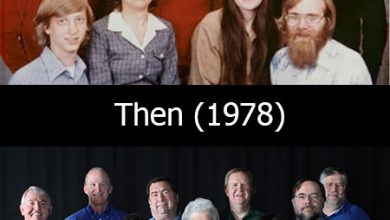
WARNING: THIS REPORT CONTAINS SOME GRAPHIC IMAGES
Clomp, clomp, at the break of dawn, the agile legs of scores of young men and women stomp the roads that lead to the Ojota area of Lagos state, Nigeria’s commercial capital. Unashamedly, they are in pursuit of their daily bread. The race comes to a halt at the entrance of the green-painted structure housing the Monaplex plastic factory.
At the entrance of the factory, workers sign registers, submit their phones to the security guards, and go through a facial recognition machine; then, everyone veers to their units.
The sun had done more harm to Matthew Eworo’s body and the meagre profit he was making from cycling around Lagos to sell ice cream no longer made sense. He was strained and had seen enough. Matthew – untrained, indebted and with no relevant educational qualification – decided to join the plastic factory in May 2023 as a casual worker. For a boy who managed to finish secondary school, he had no choice.
With high shoulders and a wide chest, the soft-spoken 29-year-old Matthew is physically built for the strenuous work. As soon as he resumed work, he was posted to the mixing section of the factory.
Each worker is entitled to N1,650 for a 12-hour shift (7 am – 7 pm), N1,850 on Saturday, N2,000 on Sundays, and N800 as a bonus when a worker misses none of his shifts from Monday to Friday. Workers can earn as much as N53,400 in a month if they work every day of the week from Monday to Sunday.
Initially, this new opportunity seemed like a better life for Matthew, who had relocated from Anambra to Lagos in May 2022, after a tricycle he got on hire purchase was snatched from him by armed robbers. While working with the tricycle in his home state, Matthew was paying for the vehicle in instalments and needed N90,000 to complete the payment and have full ownership. He could not clear the debt owing to the unfortunate incident. He had a wife and two children to feed and he could not stay idle, brooding over his fortune. He left for Lagos, where he was told he could hustle hard, get a better life and send money back home.
But things didn’t work out as planned. As they say, life comes at you hard and fast. It breaks down your mind, body, and soul until there is nothing left.
Blood gushed out uncontrollably as his hands remained clipped to the machine, which brought him to his knees as if he owed the plastic-making glittering piece of steel more than his sweat but also his blood and flesh. Other workers rushed to his rescue, but it took more than five minutes before his right wrist could be freed.
By then, more blood had been lost. The palm had been cut through, while a deep, rough, and round hole had been created by the shafts of the machine.
“Surgical emergency LASUTH,” the doctor wrote on Matthew’s drug prescription form, along with the name of the health specialist to handle the surgery.
Shortly after being discharged from the hospital in Gbagada, leading staff members at Monaplex, including the tall, dark HR manager, who had interfaced with Matthew during his stay at the hospital, refused to pick up his phone calls for days until he went to the factory with a couple of his friends.
It was not until September 21, more than two weeks after the incident, that he had his first appointment with the doctor at the Lagos State University Teaching Hospital.
“The doctor said the time has been wasted and the surgery should have been done immediately after the incident happened, but now that the hand is swollen, I would have to wait till it reduces before it can be further examined,” Matthew told TheCable on his second appointment with the doctor on October 5.
He continued to go for examinations at the hospital; but on November 2, he was told the hospital was on strike and the doctor could not attend to him. “You can’t see the doctor today.” It was the same remarks he had received on October 19.
Matthew’s condition is like a soul in purgatory. Though naturally chirpy, he is wedged in between a rock and a hard place. He is apprehensive about the fate of his three dead fingers and a stiff thumb. He awaits the doctor’s verdict. Though Monaplex has paid him his monthly salary twice since the incident on the last day of August, the company now shows little or no interest in his condition. After all, he is just a casual worker, as Matthew often says.
With a nonfunctioning dominant right hand, Matthew is left to outsource cooking, laundry, and other basic things he used to personally do.
He spends more money on prescription and over-the-counter medications, and amid this forlorn, he still has to cater for his young wife and kids back home in his village in Anambra.
“I just want to hear what the doctor will say. I want to go home to find a solution to it. I’m tired of waiting, and I don’t know what will happen to this hand,” he said loudly, as if to overshadow the screeches of vehicles making U-turns through the rusty front gate of LASUTH. He sounded as though he had given up.
To get first-hand experience of the working conditions at the plastic-making factory, this reporter applied for a job at the facility. On October 3, this reporter was hired on the spot as a casual worker in the production department by a bearded recruitment agent.
You do not need any previous experience and there was no crash course on how to handle the equipment. You learn on the job.
The agent said he hired new applicants because the company urgently needed workers in the production section.
“I expect that in two to three days, you will start producing. We need production workers and your faces look sharp,” the agent said.
But it was a bad day. There was a mini-protest staged by aggrieved, underpaid workers before the 12-hour workday shift started.
By 11 am, most of the disgruntled senior workers had rolled up their sleeves and joined the others in the factory. They had been settled.
Phones must be submitted to the private security guards before any worker enters the factory. Three persons, including Mr. Babul, the factory manager, and the female human resource person, must sign out workers before they are allowed to exit the facility or go for a break during working hours.
He mounted a half-dozen rims made of plastic on his right shoulder, carried another with both hands, and moved away between the moulding machines.
Each person worked harder than the other. Walking past the stretched length of the factory, workers mounted, screwed, fixed, opened, closed, and pulled out plastics of different shapes from the very big and horizontally-laid injection moulding machines.
“Targets are to be met” is the mantra as a section of production at machine 3, where blue and white plastic chairs are produced, must turn in 500 sellable chairs in 12 hours.
“You must clock in on time, sign all the registers, and use the facial recognition machine when coming in and at the end of your shift,” the bearded agent told new workers. But it was more than a piece of advice. It was a stern warning and one of the easiest ways to lose a day’s wage after expending every ounce of one’s energy for 12 hours. Not meeting the target has repercussions.
In a matter of minutes, the new workers, including this reporter, were onboarded by a quick-walking, fast-talking, wristless man popularly known as AY.
During the brief induction, after counting a set of black plastic rims with his wristless right hand, as if to show us how it is done, AY, one of the senior workers in the storing department, lifted the half-a-dozen pack with his left hand and swiftly supported it with the wristless one. There and then, he led, and we followed, like a lamb to the slaughter, into a workshop where we packed a section of a room full of plastic rims.
A HARVEST OF WRISTS: WORKING UNDER HARSH CONDITIONS WITHOUT PROTECTIVE EQUIPMENT
Israel, one of the workers at machine 3, tendered his hands forward as if he wanted to be tied. He showed burns on his skin caused by the molten plastics that landed on him several times during production.
When asked what happened to the restless, wristless man, he said: “AY? He got wounded in this place. I was not here when it happened, but it is not a secret. If he had come here looking for a job without his right hand, they would not have employed him.”
“You can get wounded anywhere, not only at the grinding section. I heard the AY guy used to work at production; now he is in the store packing chairs.”
Israel laughed: “It is a difficult job, though. They (staff members in the storing department) rarely go for breaks because there is always something to carry.”
As we spoke, the moulding machine stopped working and Obinna, our senior colleague, picked up a 24-inch adjustable wrench, curled onward to the frontal part near the mould cavity where the molten plastic was dripping and dipped the wrench with his right hand, travelling down the dark alley of the machine’s neck.
Without a welding helmet, hand shield or goggles, Obinna, like other workers manning the moulding machines, did a quick tack weld on the appliance without prior training or expertise in maintenance or repairs as he later confirmed. There were no safety booths too.
These types of workers, a 2022 health report confirmed, suffer increased mortality from thermal burns, traumatic injury “silicosis, cardiovascular disease, chronic obstructive pulmonary disease, and lung cancer.”
“Plastic production workers are at increased risk of brain cancer, decreased fertility, neurotoxic injury, leukaemia, and lymphoma due to constant exposure to highly heterogeneous and synthetic chemical materials,” the report states.
In total contravention of section 47 of the Nigeria Factories Act of 2004, the Monaplex company has failed AY, Matthew and continues to fail many other workers by not providing “suitable gloves, footwear, goggles and head coverings… in any process involving excessive exposure to wet or to injurious or offensive substance.”
“Suitable goggles or effective screens shall be provided to protect the eyes of the persons employed in the process. Where in any factory electric arc welding is carried on, effective provisions shall be made , by screening or otherwise, to prevent persons employed from being exposed to the electric arc flash,” the act reads.
According to a research study by Umeokafor, Allen and Umeadi (2014) on occupational accidents, injuries, accident causal factors and intervention in Nigerian factories between 2002–2012, findings showed that 80% of accidents occurred at night, while manufacturers of rubber products accounted for the highest number of injuries at 53.8% and 63% for death. The total fatality rate was 49.5.
In response to our findings, Monaplex said the company provides safety equipment, but the staff members do not use it.
“Matthew Eworo was wounded while working with our company; however, it is not true that our company failed to provide safety equipment. The challenge we have always had is workers refusing to wear the equipment because they allege that it makes them uncomfortable,” Mosunmola Ayinde, a human resources officer, told TheCable.
“He was taken to the company’s retained hospital (Ameso Clinic), where he was referred to Lagos State University Teaching Hospital, where he was scheduled for surgery, but the surgery could not go on the day it was fixed due to strike action by health workers around that time. Subsequently, LASUTH has scheduled him for surgery next year.
“The hospital and the consultant treating him are in the best position to state the reason for delaying the surgery. We have been solely responsible for his medical bills since the incident occurred, and his salaries have been paid up to date. He will be adequately compensated in line with company policy and the provisions of the Employee’s Compensation Act 2010 once his treatment is completed and he is fully recovered.”
But in a follow-up chat with Matthew, he said he was not given protective equipment and did not see any worker wear one while he worked in the company.
In 2021, the federal government began the process for a “review of obsolete occupational safety and health regulations” of the Factories Act of 2004, adding that the process would bring the country up to date with international best practices.
Also, in May, the federal government approved the implementation of the Employee Compensation Act (ECA) 2010 for the payment of compensation to employees who suffer from occupational diseases or sustain injuries arising from accidents at the workplace or in the course of employment.
“The act provides that the worker, who is injured or had an accident or contracted a disease or disabled or dies in the course of work, should be compensated, remunerated and even the family, pay something when the man is no longer there,” Chris Ngige, former minister of labour, said after the federal executive council (FEC) meeting in May.
“So, today is a good day for the Nigerian workers because the decent work agenda that is contained in Convention 102 of the ILO has a major branch on what they call workers’ protection in the course of work.’’
At the moment, nothing has been heard of the review proposed by the federal ministry of labour and employment to protect the likes of Matthew and AY from occupational hazards at the workplace.
This is a special investigative project by the Cable Newspaper Journalism Foundation (CNJF) in partnership with TheCable, supported by the MacArthur Foundation. Published materials are not the views of the MacArthur Foundation.






